The Reviver
A Profile of Steve Gleason

Some of the world's strongest oak trees grow in New Orleans. They are famous for their resilience, having withstood centuries of catastrophic storms. The Anseman and McDonogh, two of the region’s oldest trees, will soon enter their second millennium. When Hurricane Katrina displaced a million people in 2005, New Orleans’ oaks adapted. Their leaves reconfigured into more aerodynamic shapes to brace against gale force winds; their roots fortified and kept them standing.
You probably haven’t spent much time contemplating oak trees, but Steve Gleason has.
“I grew up in an area of mountains and cold, clear rivers and lakes,” Gleason tells us, typing with his eyes on a tablet that scans the movement of his retinas, “I missed that beauty when I moved to New Orleans. The oak tree connects me to this area, it connects me to this new version of nature, it connects me to life.”
PART ONE
Steve grew up in the Pacific Northwest. Raised in Spokane and homeschooled under the roof of two Christian fundamentalists, he remembers being painfully shy but drawn to the outside world. His grades placed him on the honor roll by the time he got to Middle School; his natural ability in sports won him friends.
In eighth grade, on the first play of the first football game he ever played, Steve flew down the field and hit a kid so hard he almost knocked himself out. He still remembers the way the adrenaline made him feel.
His high school years were spent at Gonzaga Prep, where he was taught by the Jesuits, earned two league MVPs, and secured a scholarship to play linebacker at Washington State University.
At WSU he studied business, wrote poetry, and led the Cougars to their first Rose Bowl in sixty-seven years. In the springtime he played centerfield.
After college, his dreams of playing pro football intensified – but he was passed on by every team in the 2000 NFL Draft. The consensus was simple: at 5’11 he was too small to make it in the NFL, especially at linebacker, and that fall he moved back to Spokane to live with his parents.
A few months later, just before Thanksgiving, he received a call from New Orleans.
Steve’s career as a Saint started on the practice squad, where he cut his teeth as a rookie. When a freak accident sidelined a starter, he was called up. Tapped to block punts and tackle kick returners, he was the type of player special teams’ coaches dream about: reckless, full of heart, brave.
While most of his rookie teammates chose to live in the suburbs, Steve settled in a one bedroom unit near the French Quarter. He grew his hair long, practiced yoga, and learned how to play the guitar. He took an interest in Eastern Philosophy and read books like Awareness, Ishmael, and Living Buddha Living Christ. He never owned a TV.
During the off season, he traveled to remote corners of the world with loved ones. He hiked in Chile, scuba-dived in the Galápagos, surfed in Nicaragua, and stood face to face with the Moai statues of Easter Island.
In August 2005, Katrina broke the levees in New Orleans, submerging parts of the city in floodwater nearly twenty feet high. The category-5 hurricane displaced a million people, caused $125 billion in damage and claimed nearly 2,000 lives. Never before had a more cataclysmic disaster been recorded by the state.
The SuperDome, the Saints home stadium, transformed into an evacuee center — a modern ark amid a biblical storm — for over 18,000 refugees. It was an operation that had “quickly degenerated," reported The Seattle Times, “into unspeakable horror.” Professional football would not be played in New Orleans for over a year.
On a Monday night in September, 2006, a sold out crowd of beat-down fans returned to the SuperDome to watch their home team play the Falcons. Steve remembers looking up at the faces in the crowd during the national anthem and knowing that it would be impossible for New Orleans to lose.
On the fourth play of the game, after Michael Vick’s offense went three-and-out, Gleason, #37, lined up over the A gap. Just after the snap, a hole in the offensive line blew open and he bolted through it. What transpired in the seconds that followed would be immortalized in bronze. Steve dove and blocked Michael Koenen’s punt, sending the ricocheted football directly towards the Falcons goal line before the Saints recovered it for a touchdown.
To this day, the roar of the crowd after he blocked the punt is the loudest sound Steve's ever heard. For nearly a minute after the touchdown, ESPN announcer Mike Tirico remained silent. The pandemonium spoke for itself.
Locals still refer to Steve’s block as “the rebirth.” At least one fan likened the moment to a heart-transplant for a city on the brink. They called it a revival.
Three years later, a few days short of his 31st birthday, Steve retired from the NFL. By his estimation he had another three to four years in him, but the timing was right. “I’m getting married,” he told reporters, “I can walk away with my health. I want to be active and adventurous when I’m 80 years old.”
On a bridge over the Bayou St. John, Steve married Michel Varisco — a close friend who turned out to be the love of his life and most faithful advocate. Afterward, he and Michel packed small backpacks and for six-months circled the world, opting for tents and campervans over hotels.
Back in New Orleans, Steve landed a job as a sustainability consultant and enrolled at Tulane for his MBA. Life after football for the Gleasons was unfolding as planned.
The first sign that something wasn’t right came on Labor Day weekend 2010, during a trip to Point Clear, Alabama. Steve was goofing around with Michel’s two brothers and decided to have a pull-up competition on a low-hanging branch of one of the massive oak trees on the lawn in front of their hotel. Steve could typically knock out ten. That day he hopped up on the branch and struggled to complete two.
He dismissed the weakness as a byproduct of the 50-mile charity bike ride he’d taken earlier in the day and went on with his life.
The strange occurrences continued though. Odd twitches flickered in the muscles of his arms, shoulders, back, and chest. Steve took a leave of absence from his job and withdrew from his classes at Tulane to figure out what was wrong. After five months of crisscrossing the country for a slew of tests and opinions, he sat in an empty bedroom and sent the following email to his closest friends and family:
Well. Let's get to it. Yesterday I met with one of the best Amyotrophic Lateral Sclerosis physicians in the world, and he diagnosed me with ALS. I have spoken with everyone on this email chain in the last few weeks so I think most know the 'deal'. The 'deal' is that nearly all diagnoses are terminal (our doctor mentioned 3 cases of conditions stabilizing.) The average lifespan is 2-5 years post diagnosis. Which puts a slight detour in my plan to live to 109. I intended to write some inspiring piece about staying optimistic and beating this diagnosis with the same determination and persistence that kept me in the NFL. People like hearing that. Deep down inside myself, I believe that is true. But... I want to be honest with you... I am very scared and frustrated. I don't feel like beating anything. I don't feel like doing anything or keeping my chin up or calling more doctors or taking prescription drugs or joining a support group or figuring out health insurance or revising my will or going to church or being blessed by the pope (or the pipe) or wearing magnets or eating bird food or 'clearing' chakras. I feel like being depressed. And I feel like crying. And I feel like kicking someone’s teeth in or having my own teeth kicked in. You see, in reality, our bodies are saucy meat sacks that break down and die. Fighting and persevering and persisting and determining and optimisticing, and chin-uping doesn't work for everyone. So, feeling better about being honest with the few of you who are on this email, I promise to fight and believe and expect the extraordinary and smile and laugh and cry and love our lives for every breath that remains in my body. Please, please help me do that... until I'm 109.
Six weeks after Steve hit send, Michel found out she was pregnant.
PART TWO
Steve and Michel’s decision to start a family in spite of his prognosis is at the heart of the documentary “Gleason,” which premiered at The Sundance Film Festival in 2016.
Before Steve loses the ability to speak, he makes video journals for his soon-to-be-born son, Rivers. Steve reads to Rivers, tells him about religion, masculinity, and how to build a campfire. He also records himself talking for hours at a time, ‘voice banking’ his speech to save it for the future (a common measure taken by ALS patients who’ve yet to undergo a tracheostomy).
Steve and Michel must endure the loss of his physical abilities in unrelenting increments: walking, holding, eating, and eventually speaking. All in the first year of raising their child.
As Steve’s symptoms ramp up, he and Michel kickstart “Team Gleason” - an organization dedicated to improving the quality of life for patients with ALS and their families.
In the eleven years since his diagnosis, Steve’s body has all but failed him. He can no longer move, eat, or communicate without the aid of cutting edge technology and around-the-clock care.
The vibrancy of his mind, however, has remained unchanged.
In January of 2020, Steve was awarded the Congressional Gold Medal, the nation's highest civilian honor, for his courage and activism. He wore red, white, and blue paint on his fingernails to commemorate the occasion.
The decoration is awarded to an individual or unit who performs an outstanding deed or act of service to the security, prosperity, and national interest of the United States. Only 173 have been awarded since the nation’s founding. Fellow recipients include Rosa Parks, Neil Armstrong, and The Navajo Code Talkers.
“I believe that adversity is our opportunity”— rang Steve’s recorded voice to a crowd of Congressmen, Senators, Saints, friends, and family who had gathered in the Capitol Building to honor him— “because we will all face pain and tragedy. But, it’s clear to me that beyond the human capacity of imagination, our greatest strength, as a species, has been our ability to bravely share our weaknesses and vulnerabilities with each other.”
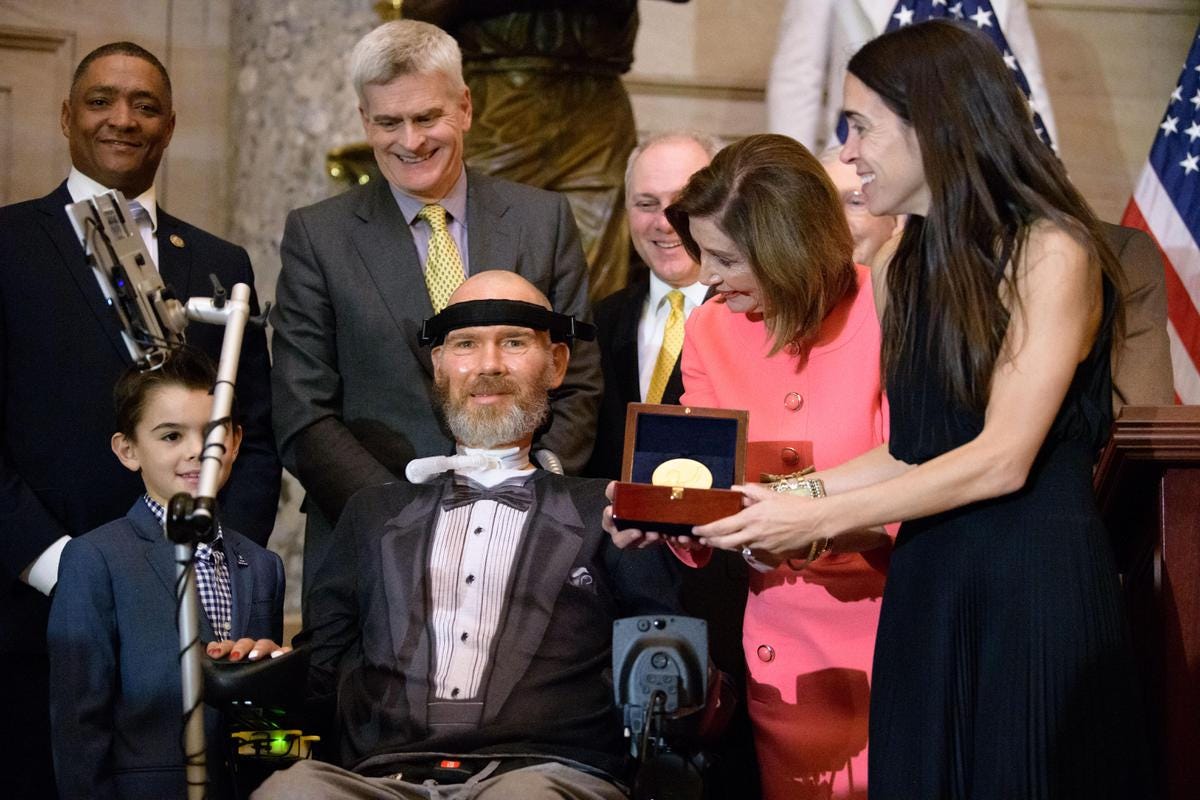
Today Steve is 45.
His priorities are spelled out plainly in his Twitter bio:
Dad. Husband. Inspiring all people to live purposefully, despite tragedy. I tweet with my eyes. Embracing ALS.
Twitter has given Steve a platform to scale his hard-won wisdom to the public sphere — a new voice, if you will. And with it he has tallied over two hundred thousand followers, including the authors of this piece — two brothers from New York who have followed Steve’s journey since “Gleason.”
“We’re 31 year old writers,” we wrote to his team this past October, “and we’re reaching out because we’d like the opportunity to interview Steve - a hero of ours.”
“Lately, we’ve become especially captivated by what we consider to be Steve’s ‘hero’s journey’ – the bravery he displays to confront and transcend suffering, to strengthen his soul, and to discover deeper truths hidden on the other side of fear and pain.”
One month later, we received a call from his assistant Stephanie at Team Gleason. She asked if we would be willing to download a messaging app called Wire that Steve uses for direct communication. He had read our questions and agreed to the piece.
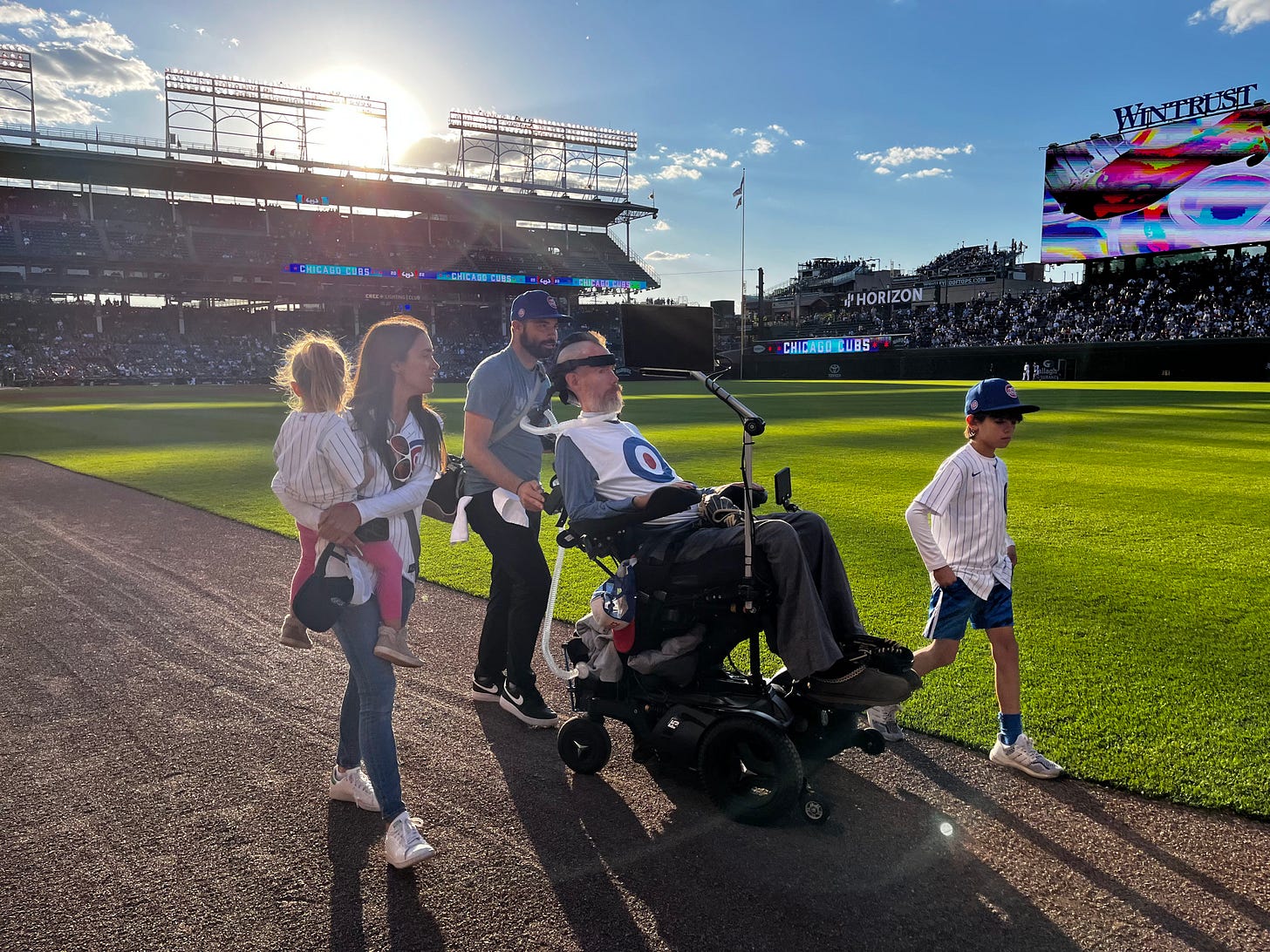
PART THREE
Our interview with Steve did not, as we naively assumed, take a few hours of his time. It lasted four months.
As he chipped away at our questions around a packed calendar of Team Gleason commitments and family obligations, something unexpected happened: we became friends.
Steve let us behind the veil of his chaotically beautiful life, and gave us a chance to report back on what we discovered.
One of the first things you should know about Steve is that he rejects the notion of hope. He prefers instead to find solace in radical acceptance, which he credits for his resilience.
“If I hoped to play in college, or the NFL, I'd have been on the streets in no time,” he wrote in a January reflection titled On Hope & Trust.“If I hoped to tackle Devin Hester, the returner for Chicago in 2006, my mind and body would be imprisoned in hope, which is empty of strength, creativity, ingenuity or power. If I hoped for a cure to ALS, I’d have been dead in 2014.”
“Hope?! — he’d gladly contend when the word came up in conversation — Really?!”
You should know that Steve’s sense of humor is alive and well. His condition has made him a maestro of self-deprecation, which he wields to quell the nerves of caretakers, crowds, and unestablished writers.
Here’s one of his go-to bits for winning over an audience:
I type and speak and do everything on this tablet, with my eyes. It's awesome, but not easy, and occasionally, I have a technical difficulty…
Technical difficulty
Technical difficulty
Technical difficulty
Just kidding, I’m all good.
You should know that Steve loves Pearl Jam and Tool, and will blindfold himself stage-side at concerts to better experience the inward journey live music can evoke. This year for Michel’s birthday, he called in a favor from his pal Eddie Vedder, who serenaded her with a smokey rendition of Happy Birthday over Zoom. Steve watched with a smirk as his wife of fourteen-years gasped and ran circles around their living room.
You should know that he tackles mind-expanding books, like Aldous Huxley’s 1954 mescaline-induced odyssey, “The Doors Of Perception” – which the three of us book clubbed together in May.
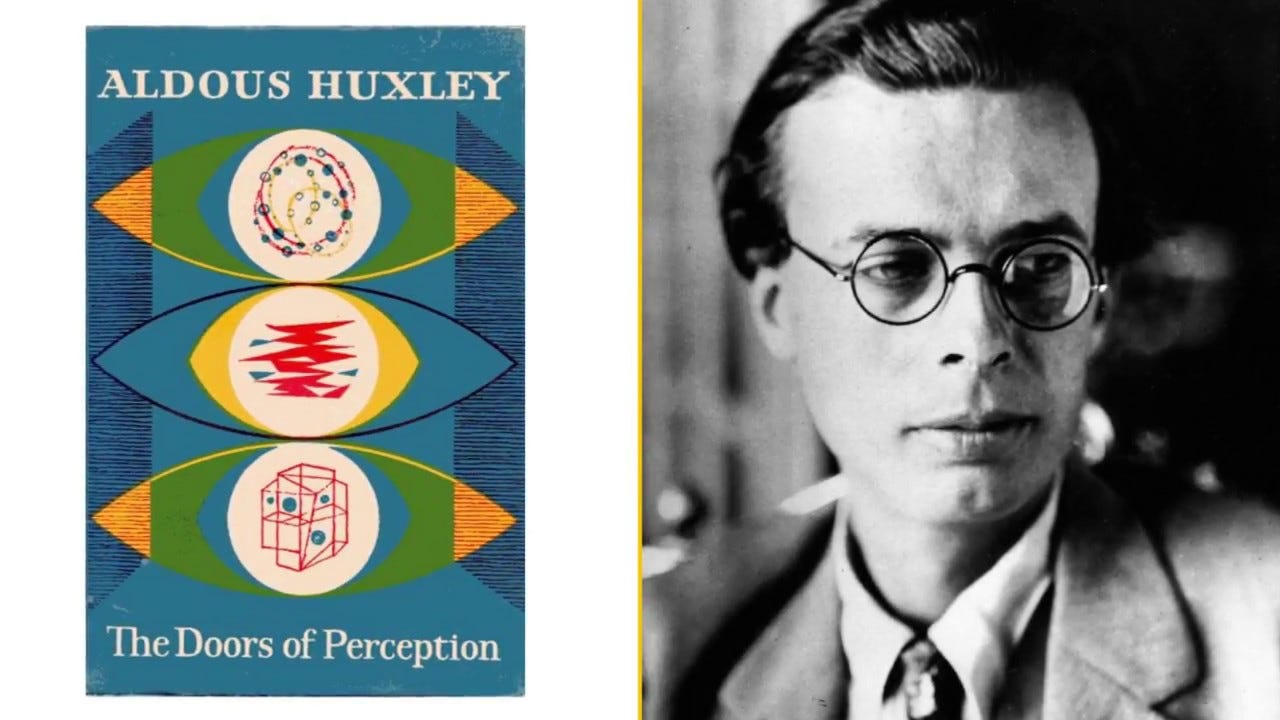
You should know that Steve meditates, ponders mortality, and tracks full moons.
You should know that he writes everyday — journal entries, speeches, and weekly letters to his family.
You should know that Steve isn’t much of a religious man, but he is spiritual, and in lieu of doctrine has chosen to dwell in the spaces where dots connect between ancient traditions. He believes tactics that fill people with fear or guilt will never lead to anything resembling faith or salvation.
You should know that Steve is uncommonly generous in his willingness to tell people he loves them. You can ask anyone who knows him. He is immensely present, and fast to forgive. By no means though is he immune to fleeting moments of despair. ALS still rips his heart out.
You should know that despite his suffering, Steve has never stopped exploring the nature of his mind. He is not a bystander at the shoreline of consciousness, but a big wave surfer.
In April, The Gleasons visited New York City for a few days to see their friend Hugh Jackman star in The Music Man, and to finalize a deal with Knopf Publishing for Steve’s forthcoming memoir (due in 2024). Steve had insisted that we join him and his family for dinner on their final night in town.
At an unassuming diner, just off Broadway, we were greeted by the Gleason family and two of Steve’s primary caretakers, Kyle and Beau, who had all sat down but had yet to order. Steve was positioned at the head of the table, and Kyle quickly set our expectations for conversing with him in person: “It’ll be delayed,” he informed us, “he’ll speak out sporadically.”
Moments later, Steve’s voice boomed out from the JBL bluetooth speaker that had been placed on the middle of the table. “Good to see you guys,” he said,“come check out the answers.”
At Steve’s request, we stood behind his shoulders and allowed him to give us a tour of his Microsoft Surface Pro command center. He showed us how he types, browses the web, toggles between apps, and drives his chair – all with the targeted movement of his gaze. Then he pulled up a word document titled Nick and Max Widmer Interview Questions.
Grinning, Steve scrolled through the sixteen pages of single-spaced answers he had typed for us. By our estimation they had taken him more than thirty hours to complete.
Steve and Michel’s three year old daughter, Gray — who they welcomed in 2018 — was getting restless the way toddlers in restaurants do, so Michel took her and Rivers back to their hotel to unwind.
For the next hour, we stayed at the table with Steve, Kyle, and Beau, drank a few beers, and talked about regular things like books, concerts, and the woes of dating in New York City.
When the time came to call it a night, Beau and Kyle ushered Steve out of the restaurant and into the middle of Time Square for a picture. Before we said goodbye, Beau relayed one last message that had come through from Steve:
“Fo to Fo, Mo Foze”
“Fo to Fo”, Beau explained, means forehead to forehead — Steve’s version of a hug. And under the lights of 42nd & Broadway we were going to experience how it worked.
Before you part ways with Steve Gleason, you press your forehead against his and stare into his eyes. You want him to know that you see him, and that you’re with him, so you muster the courage to meet his gaze firmly. And in this moment you can’t help but think about all he has lost and long since abandoned — but you are not sad.
His eyes, after all, remind you of oceans. They are vast and unbroken.
And you should know that they are brimming, undeniably, with life.
PART FOUR: QUESTIONS AND ANSWERS
This interview has been abridged and lightly edited for clarity.
What are less obvious things you miss most about your life prior to ALS, Steve? What might people be surprised to hear you’d like to experience again?
I’d say that I rarely, if ever ruminate on the corpse of the past, even in my most painful, naked, and powerless moments. Having said that, I do have moments of craving and wishing, but I don’t see it as wanting to go back into my old life.
One fun example that I like to play with is food. I haven’t eaten, or even tasted food for approximately eight years. Pretty insane, right?
It may seem strange, but I don’t miss tasting food. I eat with the family all the time. OK, I have a few times that I would love to crush some sushi, but this is so rare. I actually like to see delicious food be eaten and enjoyed by others. I take joy in being around a dinner table. Life, especially in a circumstance like mine, is fragile, like a rainbow or a feather. These times of community during meals are perfectly sacred for me.
I really don’t mind not moving at this point. There can be peace in stillness. But undoubtedly, I have moments of burning, seething frustration, mostly because I communicate so painfully slow, and typing can take enormous effort at the end of the day, or earlier in the morning. These times, especially if the kids are around, or I’m trying to teach a caregiver something, can be dreadfully painful, and unfortunately, sometimes my mind chooses to suffer. I’m working and practicing to be more accepting and mindful in these times, and I fail, but we always have the ability to begin again.
Hundreds of thousands have turned to you for inspiration, and you’ve rightfully been called a hero. We’d like to know what fictional or non-fictional “heroes” have served as your main sources of inspiration?
For Christmas a couple years ago, I asked for a picture of Thich Quang Duc to hang in the bathroom, where I “workout.“ This workout consists of my caregivers putting me through a 90-minute “workout” to get me ready for the day.
They get me out of bed and stretch, feed, brush my teeth, bathe, groom, and dress me. We have a routine where they push a daily bowel movement by thrusting a fist deep into my abdomen while a cough machine blows air deep in my lungs, and blows mucus out of my nose, mouth, and the trach hole in my neck, an exercise I refer to as my daily “exorcism.” This is pretty barbaric to witness, and not easy for me.
My job is to stay poised and equanimous throughout. When I see Quang Duc, and his ability to remain not only still, but also the poise and calm on his face while burning to death is totally miraculous.
A journalist who was on the scene wrote, “I could hear the sobbing of the Vietnamese who were now gathering. I was too shocked to cry, too confused to take notes or ask questions, too bewildered to even think ... As he burned he never moved a muscle, never uttered a sound, his outward composure in sharp contrast to the wailing people around him."
How trained and strong is that dude’s mind? I’m inspired and motivated every morning. If this monk can be this calm in the midst of flames, I can do the same in my life.
Heroine: The fictional character Eve, in Genesis. She was someone who used my favorite motto,” keep exploring", despite the boundaries.
I believe our true nature is boundless.
She explored knowledge. As a result, so the mythical story goes, in my interpretation, we gained thought, language, intelligence, reason, imagination, logic, science and its methods, tools and technology. Remarkably, this myth seems to represent the cognitive revolution that humans encountered between 75,000 to 30,000 thousand years ago. Rather than simply dwelling amongst the apes and other animals, this symbolic eating of the tree of knowledge represents the leap that propelled Homo sapiens to intelligence, imagination, etc. The “fruit” is typically illustrated as an apple or hanging fruit, but what about this... If the fruit expanded consciousness, isn't it more likely that it was some type of consciousness expanding fungi? We now have neurological evidence that Consciousness expands with entheogenic fungi like psilocybin and ergot. I’m not sure if we have the same evidence when eating apples!
Sapiens have come to dominate the earth, and we have the ability to explore the entire cosmos because of Eve’s example. Of course, we also have existential threats like nuclear war, and climate change, but we have the ability to stop these threats as well.
The future is truly in our hands as the human family, thanks to Eve.
What are your favorite books?
I read or listen to books every day. I typically have the same books on audible, and Kindle, so I can highlight what stood out when I listened. In the past year or two, I have been on a non-fiction kick. I don’t think I’ve read a fiction book in a while, but below is a rough list of my favorites:
The Brothers K - David James Duncan
Origin - Dan Brown
The River Why - David James Duncan
East of Eden - John Steinbeck
Their Eyes Were Watching God - Zora Neale Hurston
Ishmael/My Ishmael. - Daniel Quinn
Sphere - Michael Crichton
Siddhartha - Herman Hesse
Game of Thrones (series) - George R. R. Martin
Ender’s Game - Orson Scott Card
South of Broad - Pat Conroy
The Fountainhead - Ayn Rand
Oh the Places you'll Go - Dr. Seuss
Non-fiction is more difficult because I have so many favorites (and recent additions keep coming), but I’m listing 21 Lessons for the 21st Century as my favorite non-fiction book. I first discovered Yuval Noah Harari on Sam Harris’ podcast Making Sense several years ago. Several of these authors in this list were on his podcast.
21 Lessons outlines the exponentially rapid advances in technology in the last few decades, the chaotic disruption of these advances, and argues the advances, as well as the disruption, are here and will continue indefinitely. So how can we not only survive, but how can we alleviate suffering and flourish individually and as a species?
The major takeaways for me were:
One, this is an invaluable book for parents. Everything is changing for our kids. The beliefs, stories, tools, and models that we were raised on are being shattered. Harari tells the reader that the most essential life skill to have when the future disruption is unknowable is resilience. Resilience is the ability to transform ourselves to move through painful or traumatic experiences and grow to be more whole, stronger and better people than we were before the experience. Resilient humans have the tools to be with absolutely any circumstance, as it is.
Two, Harari goes on to explain why he thinks the most important way to be resilient is to train our minds through mindfulness practice.
With my ALS career, where the course of the disease is unknowable, and anything can happen at any time, I know the anxiety of the unknown can be frightening to the mind. This book fully resonated with me. In fact, I started a disciplined mindfulness practice right after I read 21 Lessons. This practice continues today.
Non Fiction Books (Roughly Ranked - Favorites):
21 Lessons for the 21st Century - Yuval Noah Harari
The Immortality Key - Brain Muraresku
The Way to Love - Anthony De Mello
Making Sense: Conversations on Consciousness, Mortality, and the Future of Humanity - Sam Harris
Life 3.0 - Max Tegmark
Awareness - Anthony De Mello
Being You (New Science of Consciousness) - Anil Seth
Buddhism Without Beliefs - Stephen Batchelor
Sapiens - Yuval Noah Harari
Option B - Facing Adversity, Building Resilience - Adam Grant
People's History of the United States - Howard Zinn
Resilience - Eric Greitens
The New Testament - A Historical Introduction to the Early Christian Writings - Bart Ehrman
Heaven and Hell - Bart Ehrman
Universal Christ - Fr Richard Rohr
What are your thoughts on the current psychedelic renaissance?
Disclaimer: Each reader or user is solely responsible his/her/their own health and wellness decisions. Each reader should consult with their health care provider prior to using any information, product or service referenced in this article. Readers should consult their doctor or health practitioner before making any health or wellness changes, especially any changes related to a specific diagnosis or condition. No content or information in this article should be relied upon to make a medical diagnosis or determine a treatment for a medical condition, whether physical or psychiatric, or any other matter. The information in this article is not intended to replace a one-on-one relationship with a qualified health care professional and is not intended as medical advice.
I think it is critical that I point out that, if you’re chasing some blissful, or extremely amazing experience with psychedelics, or any type of meditative, spiritual experience, you’re going to be disappointed. There is no experience, or “state,” that is permanent. I’m less interested in experiences. I’m all the way interested in knowing the truth of who I really am beyond experience or circumstances that are temporary.
The conceptual, egoic mind isn’t able to understand or analyze who or what we really are, so psychedelics can be a pathway to who we are beyond the empty hopes and fears of the ego identity. In his book, Doors of Perception, Aldous Huxley says, “The Highest Order prevails even in the disintegration. The totality is present even in the broken pieces.”
Perhaps I’m biased, but I also see two more paths to mental strength, resilience, peace, and freedom. First, painful or traumatic circumstances can, perhaps paradoxically, exhaust and annihilate the ego, so I have tasted this totality with ALS. An analogy would be that these experiences “bring us to our knees.” I’ve explored and recognized more about who, or what I truly am in the last decade than I ever would have without ALS. I’m so exponentially grateful!
Secondly, I’ve experienced that authentic, dedicated meditation practice can help us dissolve, and integrate the ego, and free our minds from suffering on a regular basis. In this sense, I have the opportunity to experience Huxley’s totality any time I’m mindful. Strangely, traditional religions typically reinforce separateness, division, fear, and hope. From my experience with traditional religions, I have discovered that a more liberating path (for me) is to use the tools of meditation and mindfulness training to discover my true nature. This is possible in every moment of my existence. Who are we really, beyond the hopes and fears of the ego? We are resilient. We are at peace. This is not based on a blind leap of faith or belief. It’s a practice to be explored and experienced.
The psychedelic renaissance is a powerful progression in western culture. Anyone who has read The Immortality Key, can recognize that there is evidence the psychedelic experience pre-dates all religion. It is the most ancient spiritual experience. Therapeutic psychedelic experiences regularly annihilate the ego identity. All that remains is experience. This can be radically life changing. It’s an intimate experience with the reality of, and unity with life.
In the current day, we're growing so open to the idea of this medicine. If it’s used properly, I sense, which is supported by research starting in 2006 (the “rebirth” of psychedelic research) that this type of medicine is one way to help alleviate suffering. Whether it’s psychedelics, authentic and disciplined meditation, darkness retreats, there are several options, or some combination. Now it’s just my opinion, but I sense that when using psychedelics, it should be something of a therapeutic, ceremonial, or a ritualistic (dare I say religious) process. This approach can be far more powerful at transforming our minds than mindlessly taking psychedelics at some party, or concert. From my experience, more than religion, this ancient medicine and this ceremonial practice is important and essential to recognize our original goodness and reach the source of love that is within all of us.
On September 8th, you tweeted: “At The Soul of The Oak Tree there’s trauma, and as always, the opportunity to begin again... Rebirth!” Can you expand on this and help us understand what the Oak Tree means to you and why it’s become a recurring theme in your writing?
Resilience is the skill we can all develop, strengthen, and implement to move through and beyond painful or traumatic experiences. People may disagree, but I think this is a spiritual tool, which results from our practice of expanding our soul, awareness, or consciousness as we’re here being human.
To strengthen this vital for life skill, there are three primary elements.
Acceptance. The ability to accept the reality of our circumstances as they are right in this moment.
Transformation. When we accept experiences in the moment, we can see even the most painful situations as opportunities to transform ourselves to grow and become more whole. This seems to be the key step for all of us to become more free.
Begin again. I’m just a regular dude, so in my effort to be resilient, I fail. A lot. So, I'm learning to begin again. Beginning again is the practice, and eventually the ability, to accept my failure, let go of the past, and fully re-commit, in this moment. Then, I can rest in this moment, beyond the thoughts and emotions that inevitability pass through consciousness. This is actually the foundation of compassion and forgiveness. I can understand that failure is the path to success, so I'm able to have compassion and forgiveness towards myself and other people.
Stephan Bodian, a teacher of mindfulness, says, this entire process can be remembered as “the three R’s.” Recognize. Return. Rest.
For me, the Oak tree is a great and majestic symbol of this region. I grew up in an area of mountains and cold clear rivers and lakes. I missed that beauty when I moved to New Orleans. The oak tree connects me to this area, it connects me to this new version of nature, it connects me to life. As the Oak tree breathes out, I breathe it in. As I breathe out, the oak tree breathes me in. Extending this, I love the moon, as you know. The moon connects me with the cosmos. //
Every year, more than 5,000 Americans are diagnosed with ALS. If you enjoyed this article, please consider donating to Team Gleason at the link here.
Massive thanks to Matthias, Melissa, Aleah, and Andrew for their notes and encouragement. And to Steve and Michel, for letting us tell this story.
Fo to Fo, Mo Foze.



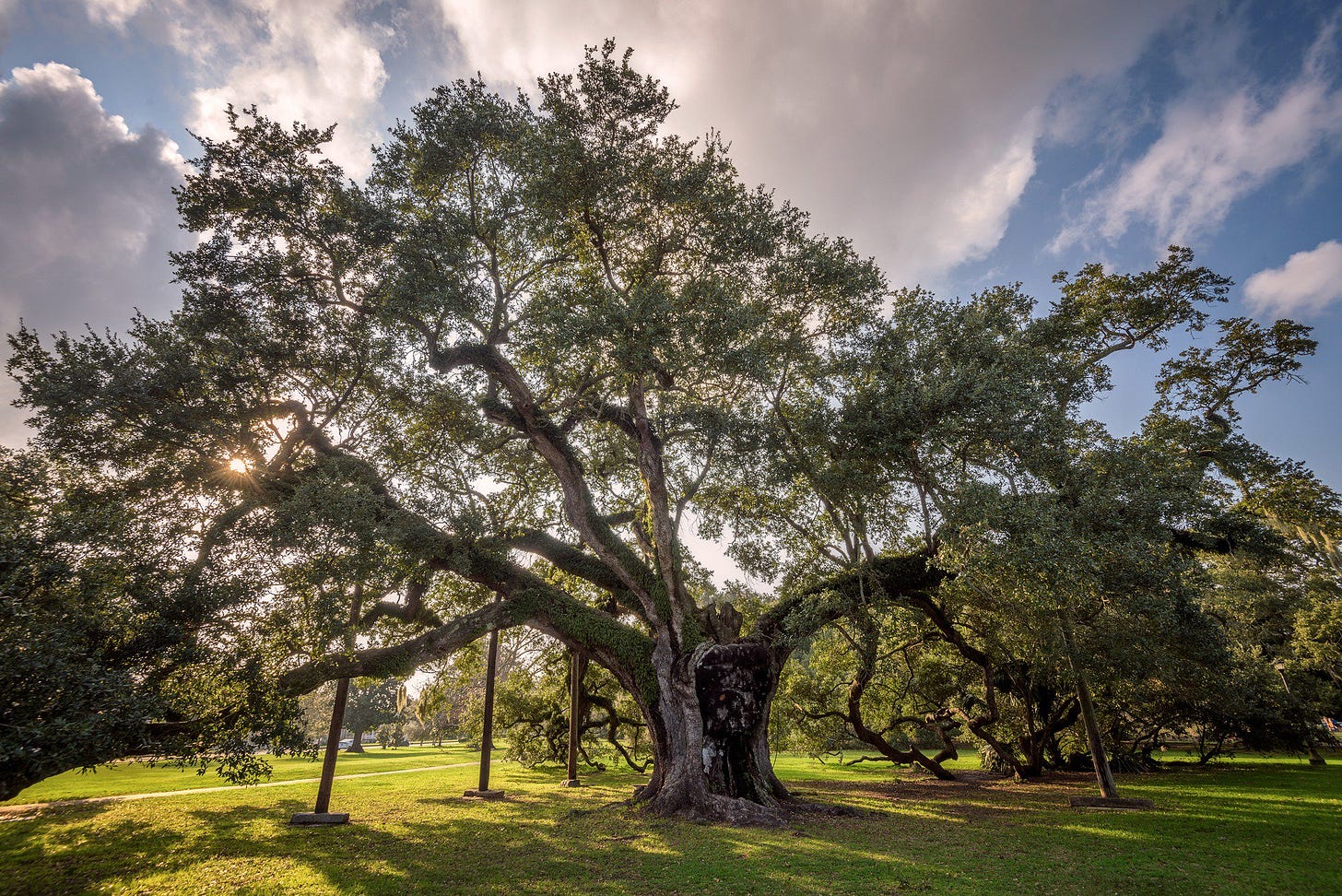
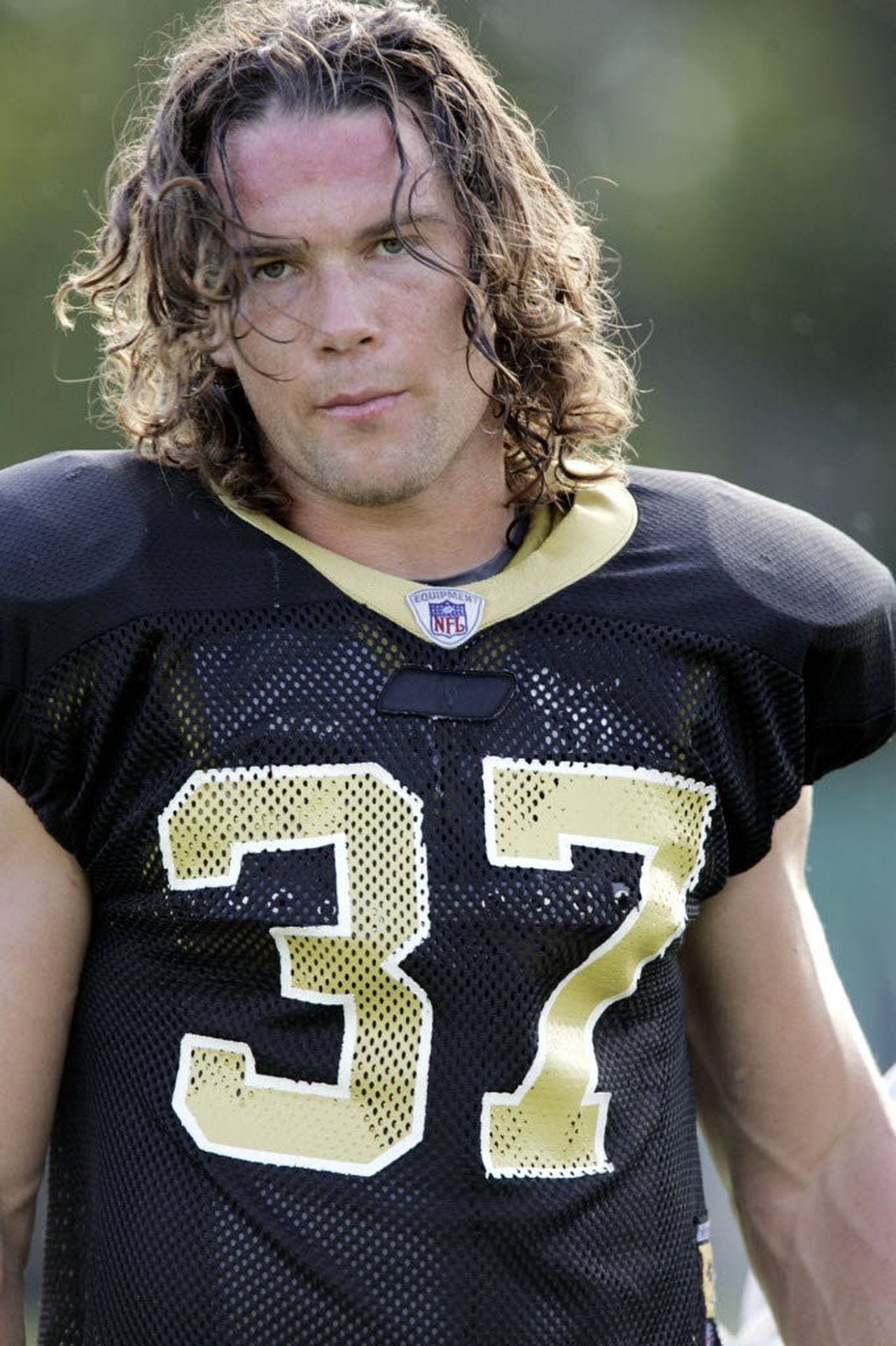
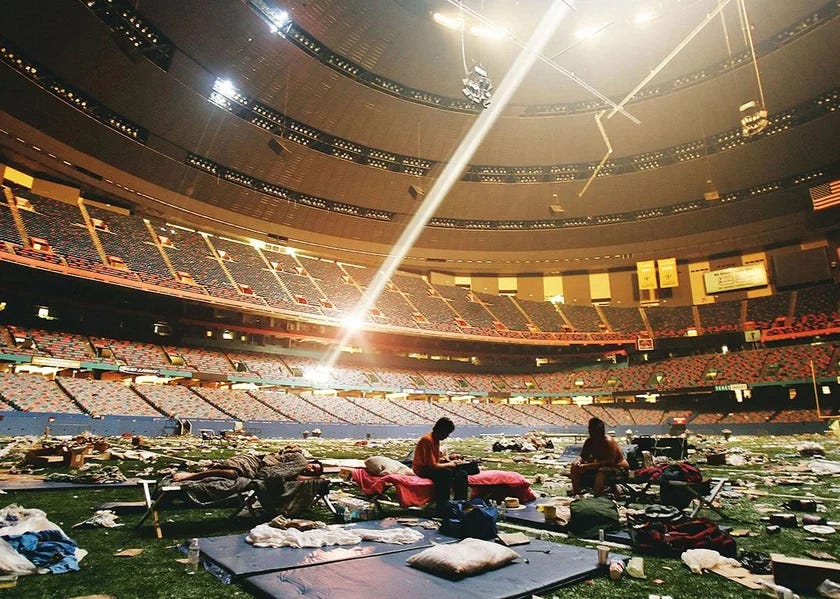
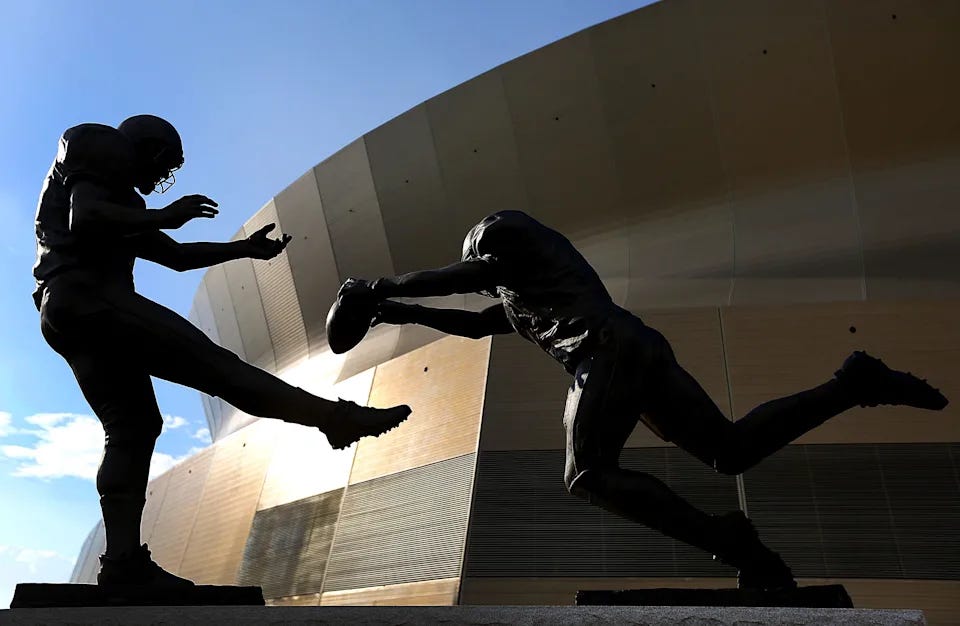
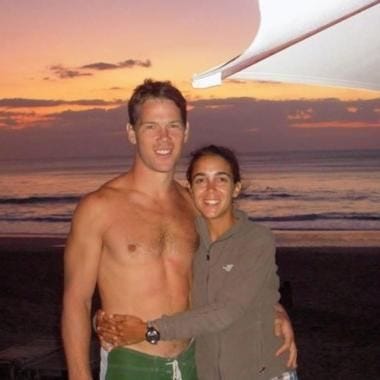
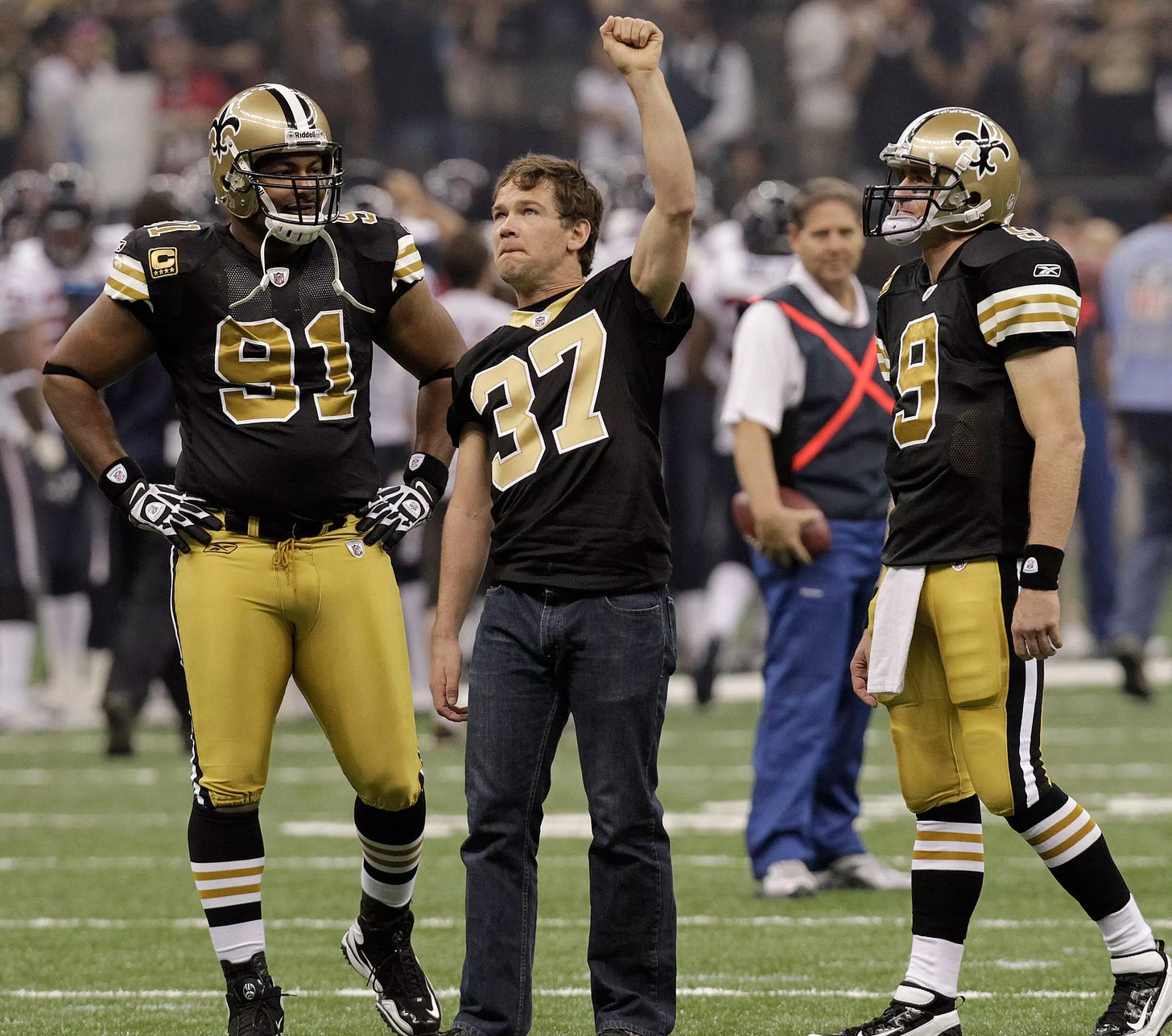
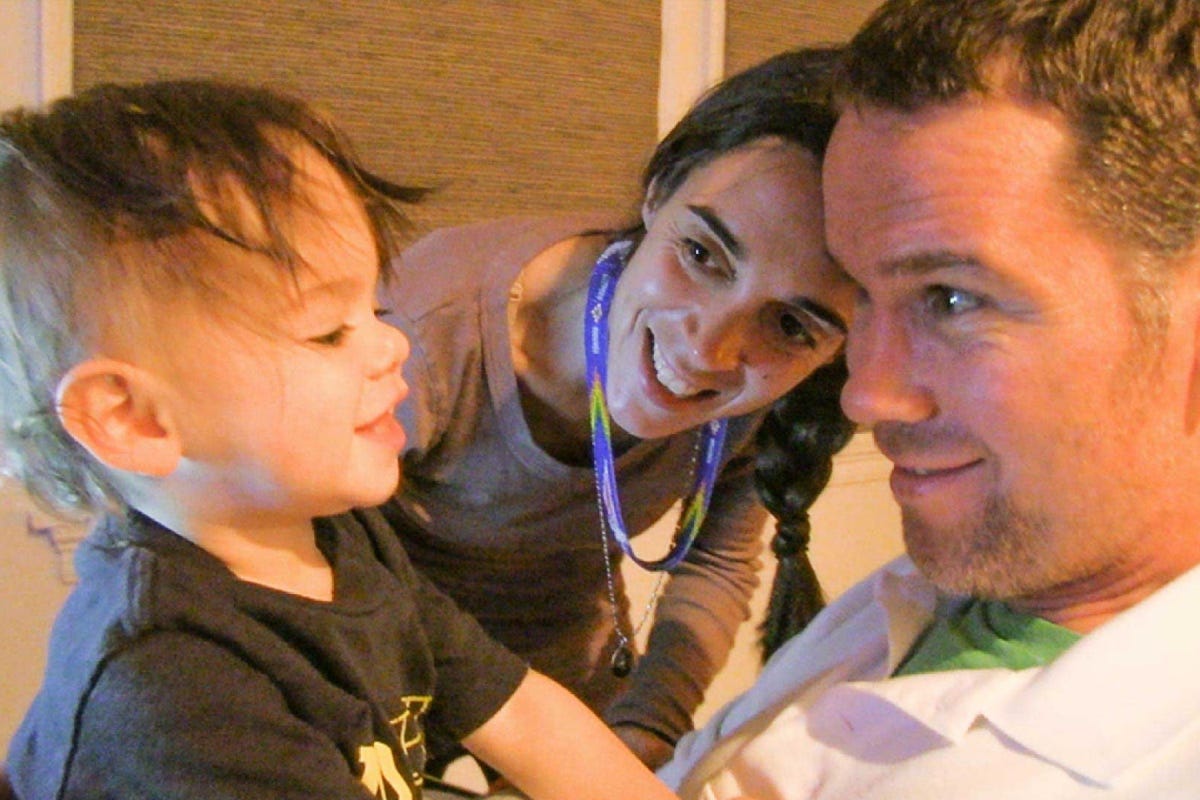
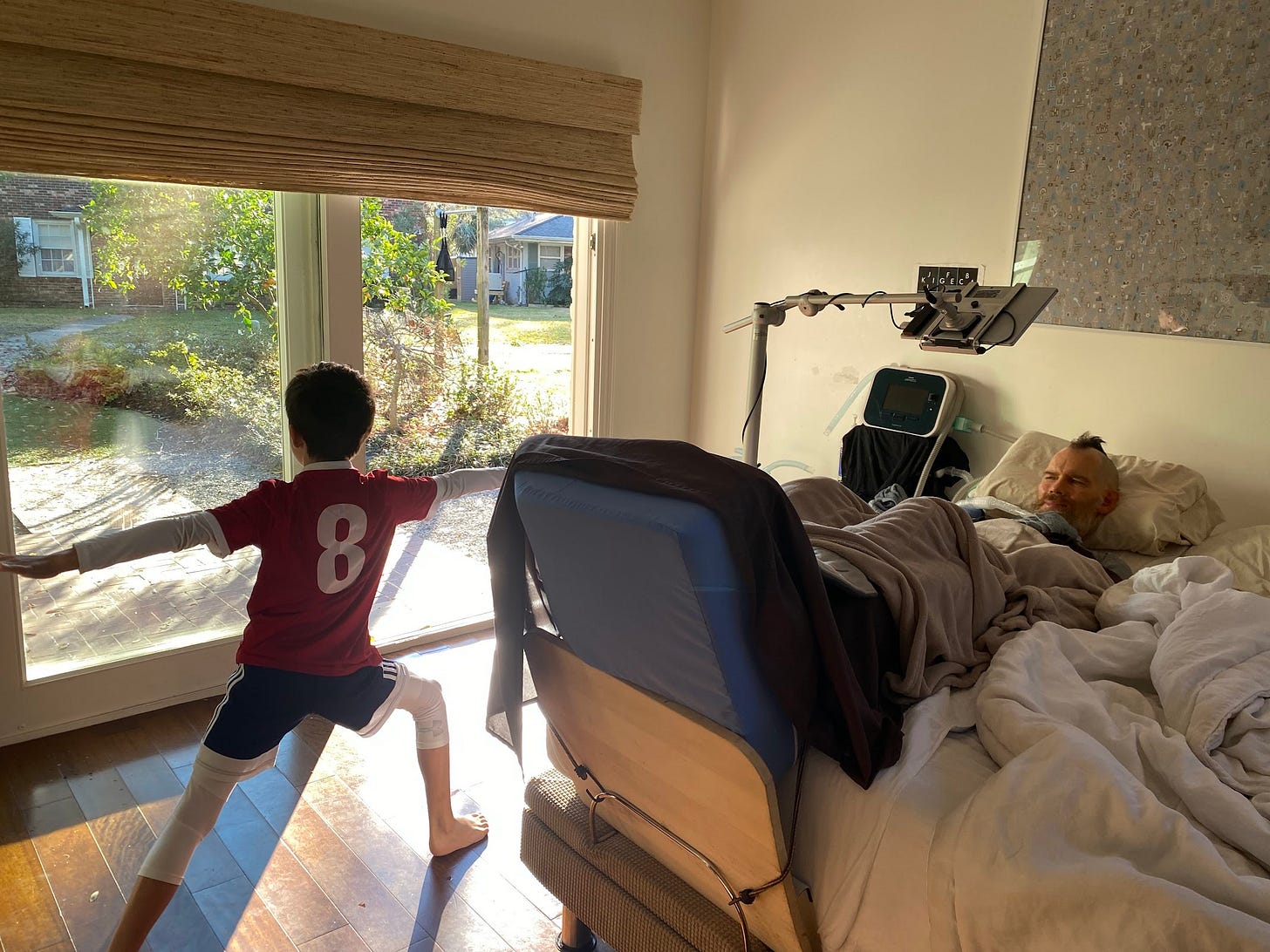
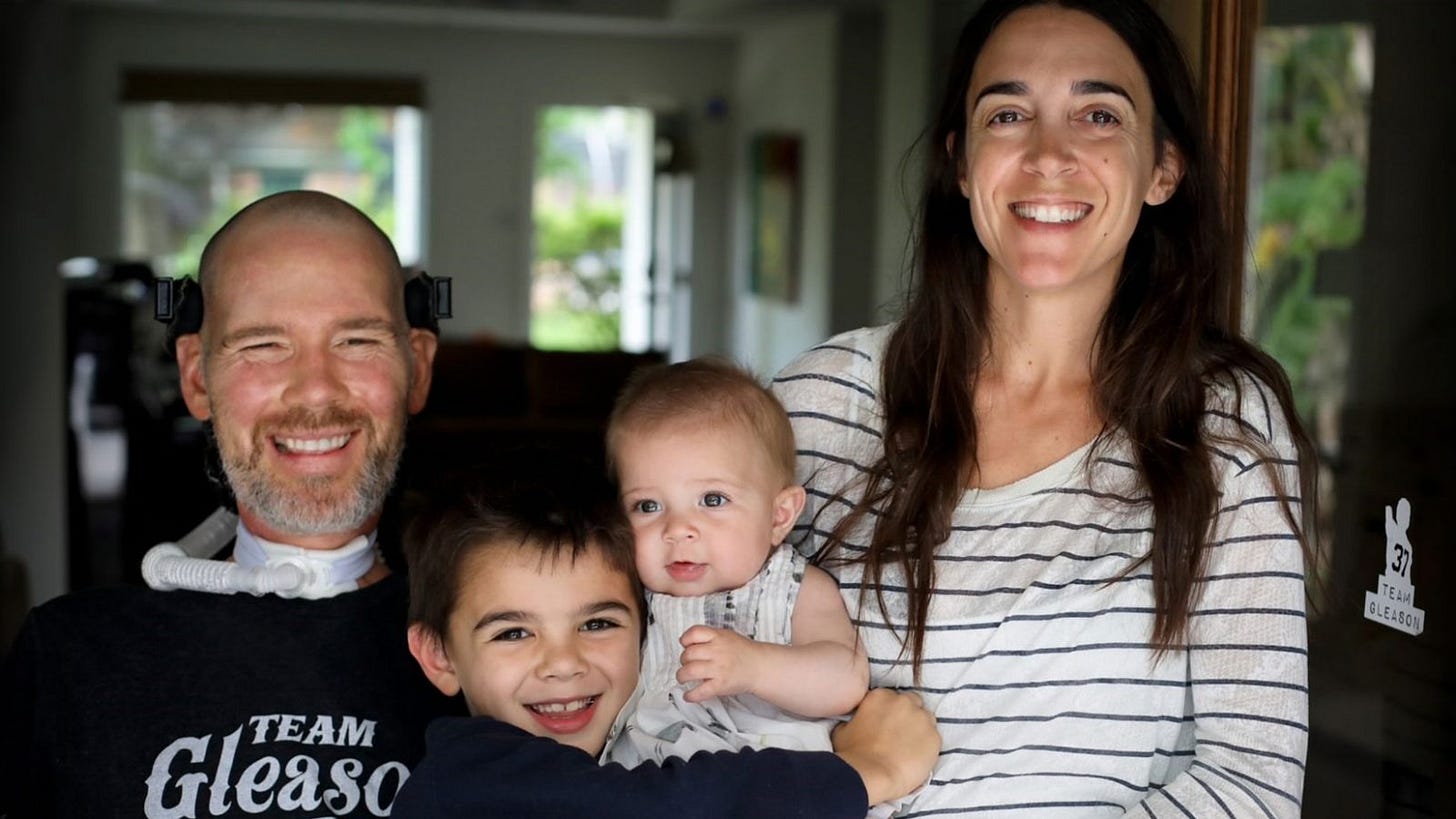
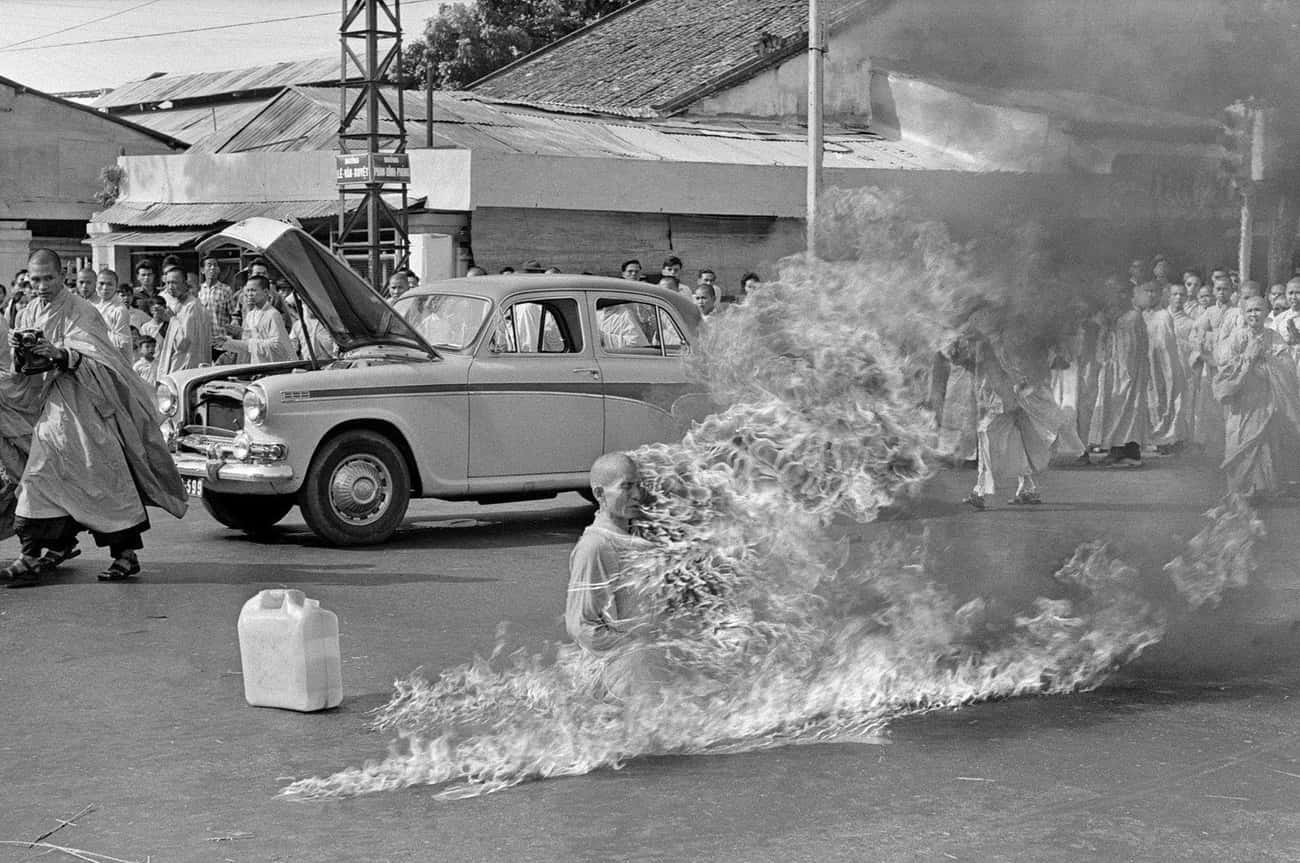
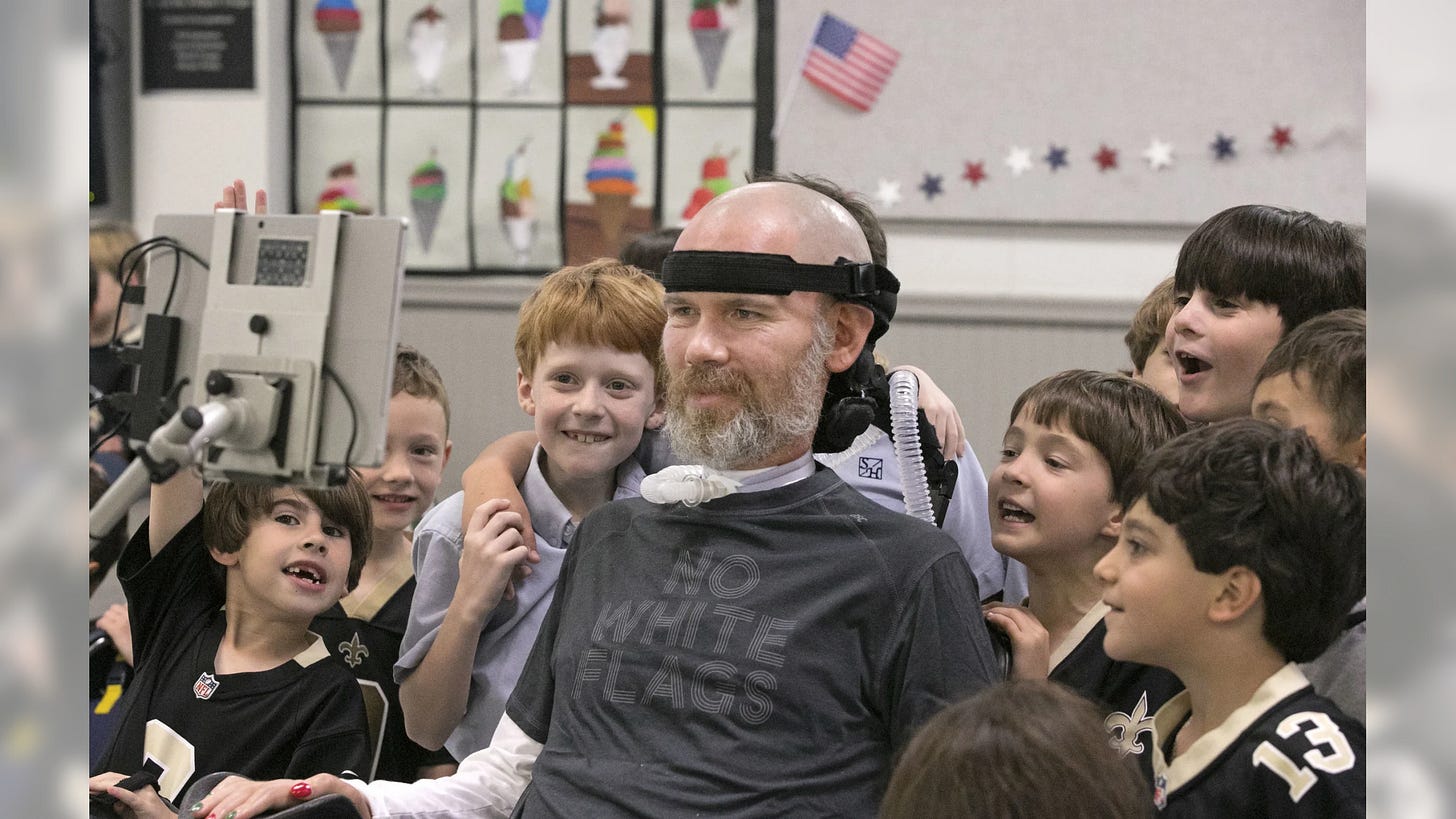
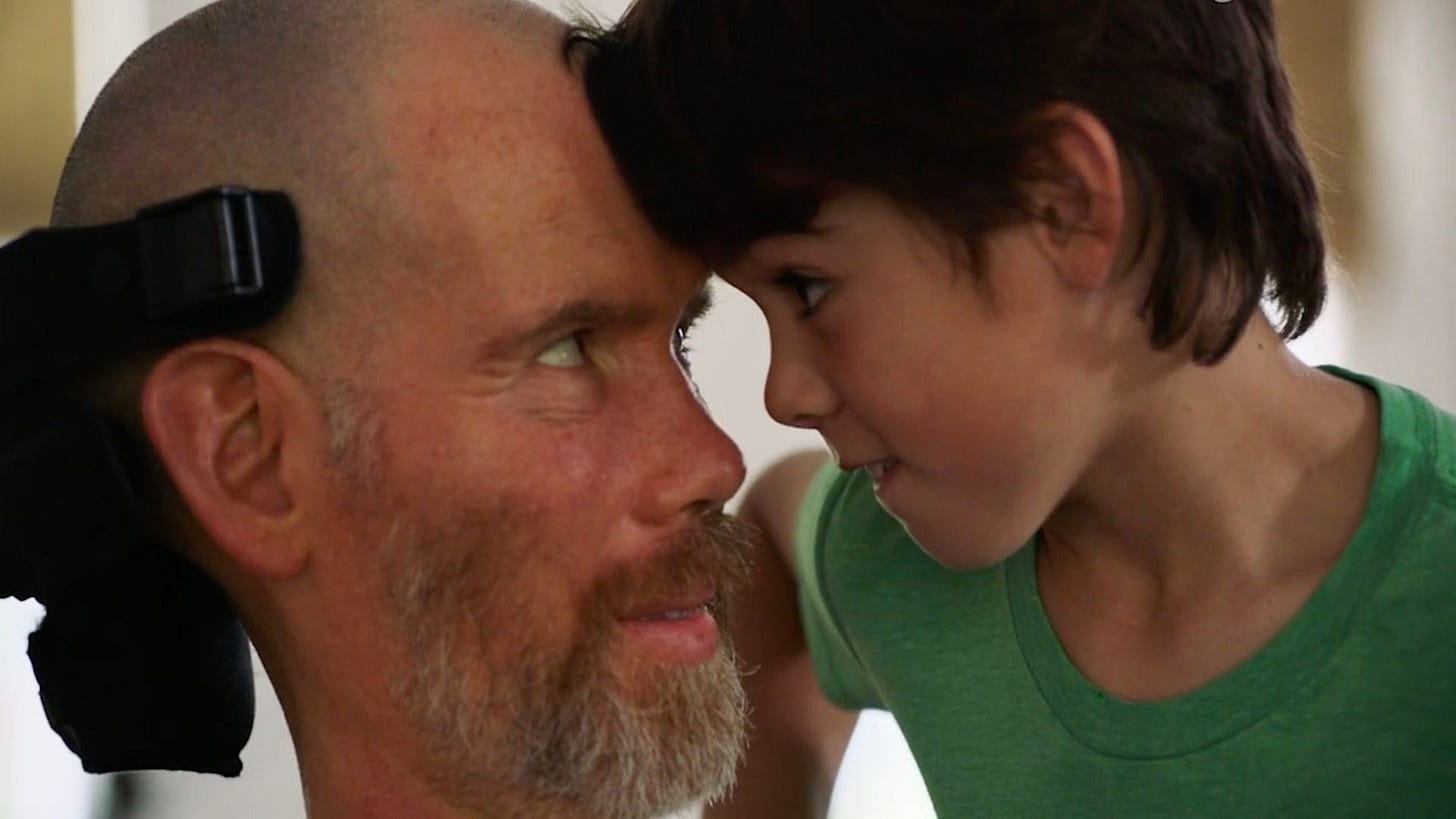
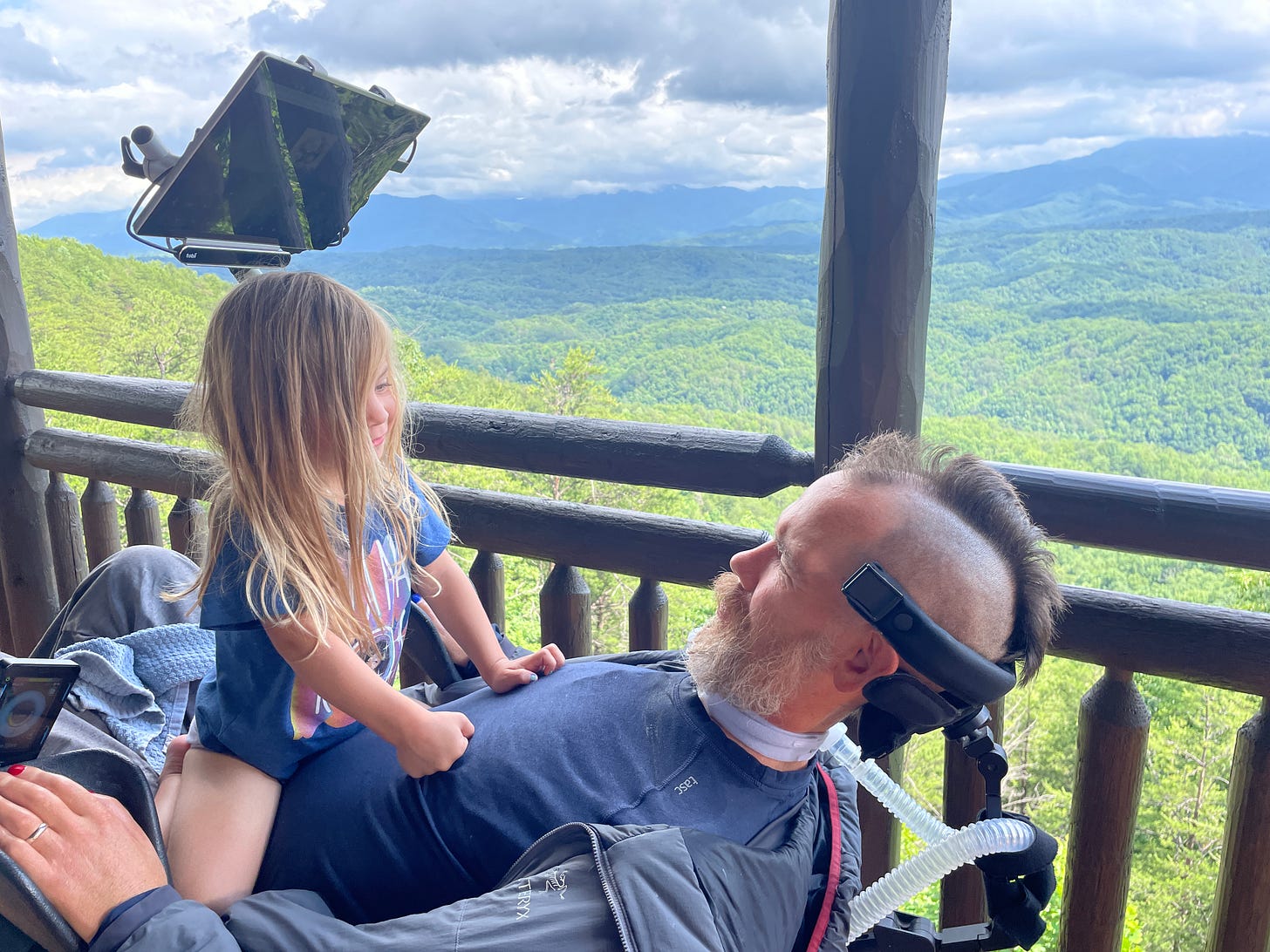


My goodness. Unbelievably grateful to have transcendent people on this earth like Steve, and story tellers like Nick and Max to relay his existence and being in such evocative language. What a profound piece of writing and witnessing. Thank you, my friends.
Absolutely incredible and moving piece. So well written and captured this amazing man who is a true teacher. I am
Blessed to have known the Widmer Brothers and their incredible family. Their talent, passion and genuine love of life has clearly guided them to produce this masterpiece. I felt as if I was right with them on Team Gleason! Truly one of the finest presentations I have read in years!!